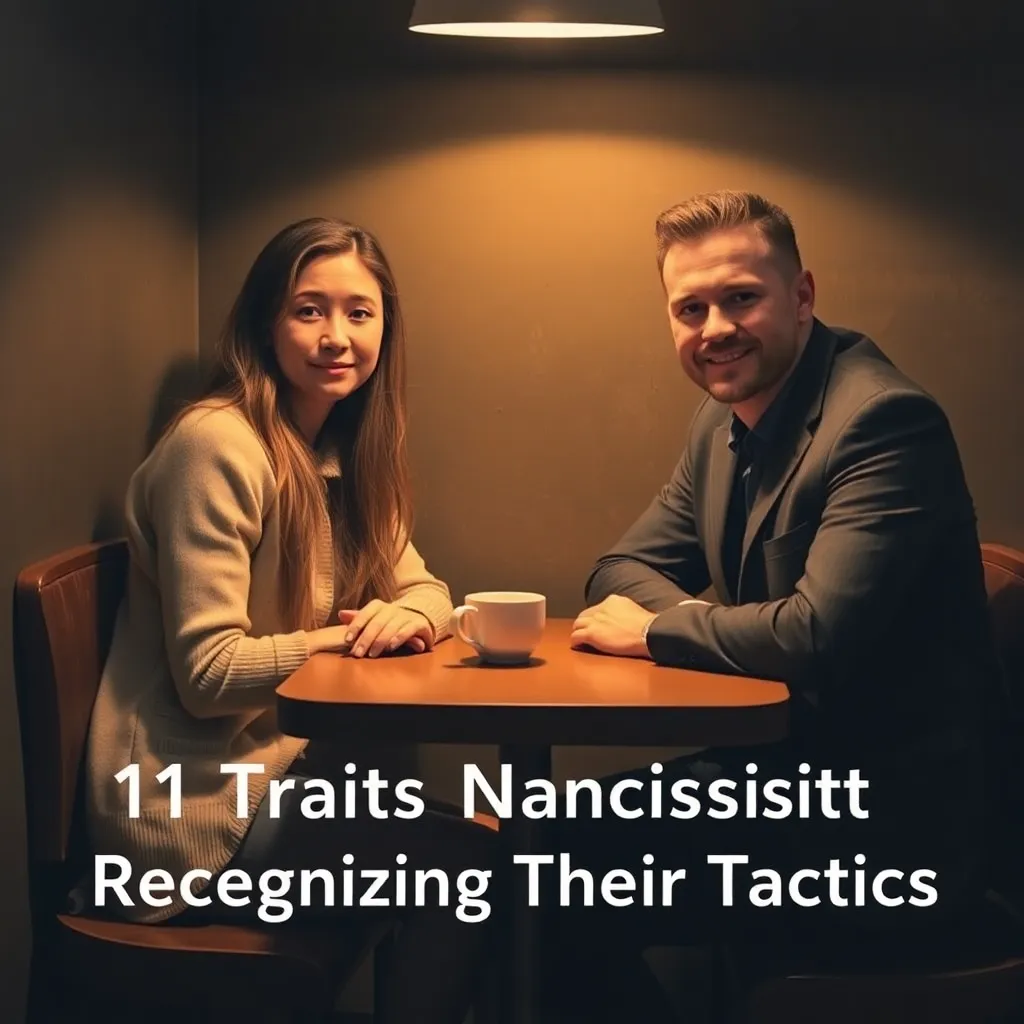Navigating the delicate dance between empaths and narcissists can often feel bewildering, especially when the boundaries between genuine connection and manipulation blur. If you’ve ever felt drained, confused, or doubted your intuitive nature in a relationship, you’re far from alone. Understanding how narcissists manipulate the compassionate traits of empaths is crucial in reclaiming your emotional well-being and ensuring healthier interactions. By shedding light on these dynamics, we can empower you to recognize and protect your innate empathy.
In this article, we’ll delve into the 11 specific traits that narcissists often exploit, providing insight into why these characteristics are targeted and how they can be your greatest strengths when properly safeguarded. As we explore these traits, you’ll learn how to maintain your empathy while setting boundaries that preserve your emotional health. Our goal is to help you cultivate relationships where your empathic nature is cherished rather than manipulated. By the end, you’ll be equipped with the knowledge and strategies to navigate these complex interactions with confidence and clarity.
1. Empaths: Understanding Their Sensitivity

Empaths possess a unique ability to feel and understand the emotions of others, often to a profound degree. This heightened sensitivity can make them exceptional friends and partners, providing deep emotional support and connection in relationships.
In real-world scenarios, you might find an empath intuitively comforting a friend who hasn’t even voiced their distress. Their ability to sense emotional undercurrents allows them to respond with compassion and kindness, often before anyone else notices a problem.
However, this sensitivity also makes empaths vulnerable to emotional manipulation, especially by individuals with narcissistic tendencies. Narcissists may exploit an empath’s inclination to prioritize the feelings of others, creating a dynamic where the empath consistently gives while the narcissist takes.
To protect themselves, empaths must learn to establish and maintain healthy boundaries. Developing self-awareness and recognizing when their empathy is being exploited can help them foster more balanced and reciprocal relationships.
Ultimately, understanding their sensitivity empowers empaths to build meaningful connections that honor their emotional depth. By valuing their own emotional well-being, they create a foundation for healthier, more fulfilling relationships.
2. Narcissists: Recognizing Their Tactics

Understanding the tactics of a narcissist can be crucial for empaths who often find themselves caught in these toxic dynamics. Narcissists are masters of manipulation, using a variety of techniques to maintain control over their relationships.
An example of this is the classic tactic of gaslighting, where a narcissist may cause an empath to doubt their own reality. Often, this involves subtle comments or actions that make the empath question their perceptions, ultimately creating dependency on the narcissist for validation.
Narcissists also employ love-bombing early in relationships, showering the empath with attention and affection to create a strong emotional bond. This stage often feels intoxicating, but it can quickly shift to manipulation once the narcissist feels secure in the relationship.
Experts suggest that recognizing these tactics is the first step towards breaking free from the cycle of manipulation. By understanding how narcissists operate, empaths can begin to set boundaries and protect their emotional well-being.
3. The Power of Empathy

In the intricate dance between narcissists and empaths, the latter’s ability to deeply feel and understand others is both a blessing and a vulnerability. An empath’s innate power of empathy enables them to connect with others on a profound level, often sensing emotions that are not explicitly expressed.
However, this very trait can be skillfully manipulated by narcissists who seek to control and exploit. For example, a narcissist might exaggerate their own emotional pain, prompting the empath to focus solely on their needs, leaving little room for the empath’s own emotional well-being.
This dynamic often leads empaths to prioritize the narcissist’s feelings above their own, neglecting their personal boundaries in the process. It is crucial for empaths to recognize when their empathy is being used against them and to establish healthy boundaries to protect their emotional health.
By learning to balance empathy with self-care, empaths can maintain their compassionate nature without falling prey to manipulation. Seeking the guidance of a therapist or counselor can also be beneficial in developing strategies to handle such relationships effectively.
Ultimately, the key is for empaths to harness their empathy as a source of strength rather than a point of vulnerability. By doing so, they can foster more balanced and fulfilling relationships, free from the shadow of manipulation.
4. Narcissistic Charm: The Initial Hook

Narcissists often use their innate charm to captivate empaths at the outset of a relationship. This initial allure is like a well-rehearsed script, designed to make the empath feel uniquely special and deeply understood. Imagine meeting someone who seems to mirror your values, laugh at your jokes, and share your dreams—it’s intoxicating. In these moments, the empath may feel they’ve found a perfect partner, unaware of the underlying manipulation at play.
This charm isn’t just about flattery; it involves a keen ability to identify and exploit the empath’s desires. For instance, a narcissist might remember small details and preferences, making the empath feel truly seen. Over time, these gestures, initially perceived as genuine, can create a strong emotional bond. However, it’s crucial to recognize when these actions are simply tactics to gain trust and control.
There’s a thin line between genuine affection and manipulative behavior, and narcissists are adept at walking it. They know how to present themselves as attentive partners, only to later reveal their self-serving intentions. Recognizing this pattern is essential for empaths to safeguard their emotional well-being. By understanding the strategic nature of this charm, empaths can maintain a healthy skepticism, preventing future heartbreak.
Ultimately, being aware of the narcissistic charm can empower empaths to make informed decisions. By focusing on consistency and authenticity in relationships, empaths can build connections that are both fulfilling and genuine. The key takeaway here is to remain vigilant and prioritize self-awareness, ensuring that initial attraction doesn’t overshadow long-term compatibility.
5. Emotional Manipulation: A Common Tool

Building from the initial charm, narcissists often rely on emotional manipulation to deepen their control over empaths. They skillfully play on the empath’s natural tendency to care, creating scenarios where the empath feels obligated to prioritize the narcissist’s emotions over their own.
Consider a scenario where a narcissist uses subtle guilt trips to influence their partner’s decisions, making the empath feel responsible for the narcissist’s happiness. This manipulation can lead to the empath constantly second-guessing their own needs and desires, ultimately fostering a cycle of emotional dependency.
In many cases, empaths find themselves in situations where they are consistently apologizing, even when they’ve done nothing wrong. This is because the narcissist knows how to twist the narrative, making the empath doubt their own perceptions and feelings.
Experts suggest that one way to counteract emotional manipulation is to establish and maintain clear boundaries. By being aware of these tactics, empaths can learn to protect their emotional well-being and recognize when they are being unfairly influenced.
Ultimately, understanding the dynamics of emotional manipulation can empower empaths to reclaim their sense of self. By prioritizing their own well-being, they can create healthier and more balanced relationships.
6. Guilt Tripping: Controlling the Empath

Guilt tripping is a subtle yet powerful way narcissists exert control over empaths. They often twist situations to make the empath feel responsible for the narcissist’s unhappiness or failures. Picture a scenario where an empath gives up a personal opportunity because their partner insists, “If you loved me, you wouldn’t leave.” Over time, this manipulative tactic can erode the empath’s sense of self-worth and autonomy.
In these dynamics, empaths may find themselves constantly apologizing for things beyond their control. It’s not uncommon for them to feel as though they must walk on eggshells to maintain peace. Imagine an empath feeling guilty for pursuing hobbies, as the narcissist claims it’s selfish not to spend that time together. Such guilt-tripping strategies leave the empath questioning their own needs and desires.
Experts suggest that empaths often have a heightened sense of responsibility, making them susceptible to these manipulations. To counteract this, it’s crucial for empaths to recognize when guilt is being unfairly placed upon them. They should learn to set healthy boundaries and communicate openly about their feelings and needs. Engaging in self-reflection and seeking support from a trusted friend or counselor can bolster their resolve.
As empaths begin to reclaim their power, they can foster healthier relationships built on mutual respect and understanding. It’s essential to remember that everyone is entitled to their own feelings and boundaries. By doing so, empaths can protect themselves from manipulative tactics and nurture more balanced connections. Ultimately, recognizing and addressing guilt-tripping can lead to more fulfilling and authentic relationships.
7. Projection: Shifting Blame Tactics

Narcissists often employ the tactic of projection to deflect responsibility and shift blame onto the empath. For instance, when an empath questions a narcissist’s behavior, the narcissist might accuse the empath of being the one who’s too sensitive or irrational. This strategy not only confuses the empath but also makes them question their own perception of reality. In relationships, this can lead to empaths feeling overwhelmed and doubting their own instincts.
To illustrate, imagine a scenario where an empath expresses hurt over an inconsiderate comment. The narcissist might respond by accusing the empath of being overly dramatic, effectively turning the tables. This projection makes the empath feel guilty for their own emotions, creating a cycle of self-doubt. Such manipulation can deeply undermine the empath’s confidence and emotional well-being.
Expert insights suggest that recognizing projection is crucial for empaths to protect their emotional health. Dr. Elaine Aron, a psychologist known for her work on highly sensitive people, advises empaths to establish clear boundaries and stay grounded in their own truth. Understanding that projection is a defense mechanism can help empaths detach emotionally and maintain a clearer perspective.
The ability to discern between personal emotions and projected accusations empowers empaths to reclaim their emotional autonomy. By standing firm in their own reality, they reduce the power of manipulation and foster healthier relationships. Remember, awareness and self-trust are key to navigating the complexities of projection in any relationship.
8. Gaslighting: Distorting Reality

Narcissists often employ the tactic of gaslighting to distort an empath’s sense of reality, leaving them feeling perplexed and unsure. This manipulation can manifest in everyday situations, such as when an empath remembers a conversation differently, only to be told it’s all in their head.
In a subtle yet powerful way, gaslighting undermines the empath’s trust in their own perceptions. Over time, this can lead to a dependency on the narcissist for reassurance, as the empath becomes increasingly doubtful of their own judgment.
An example of gaslighting might involve a narcissist denying previous agreements or dismissing an empath’s emotions as overreactions. This creates a cycle of confusion and doubt, often causing the empath to question their sanity and seek validation from the very person manipulating them.
To combat gaslighting, it is crucial for empaths to document conversations and trust their instincts. This practice can help them maintain a clearer understanding of reality and provide evidence when confronted with denial or distortion.
Understanding and recognizing gaslighting is the first step in breaking free from its effects. By fostering a strong sense of self and relying on external support, empaths can begin to navigate their relationships more confidently and maintain their mental well-being.
9. Love Bombing: Creating Dependency

Narcissists often engage in love bombing as a manipulative tactic to create a sense of dependency in their partners. This overwhelming display of affection can make empaths feel like they’ve found their soulmate, but it’s often a calculated move to gain control.
In the early stages of a relationship, a narcissist might shower their partner with compliments, gifts, and attention. This intense focus can make an empath feel cherished and unique, but it’s usually short-lived, designed to hook them emotionally.
Once the narcissist has established a bond, they may start to withdraw affection, leaving the empath confused and desperate to regain that initial connection. This cycle of giving and taking affection can create a dependency that leaves the empath continually seeking approval.
Recognizing these patterns early can help empaths protect themselves from emotional manipulation. By understanding the tactics used, they can stand firm in their worth and avoid falling into the trap of dependency.
10. Boundary Testing: Pushing Limits

Narcissists are known for their cunning ability to test and push the boundaries of empaths in subtle yet significant ways. By gradually encroaching on personal limits, they seek to exploit the empath’s natural tendency to accommodate and empathize.
Imagine a scenario where your partner consistently shows up late for plans, each time with a plausible excuse. This is a classic example of boundary testing, where narcissists assess how much disrespect you’re willing to tolerate before you react.
Experts suggest that maintaining firm boundaries is crucial in such dynamics, as it sets the baseline for respect and mutual understanding. Dr. Lisa Ferris, a renowned relationship therapist, emphasizes the importance of communicating your limits clearly and consistently to prevent being taken advantage of.
A healthy relationship respects the personal space and limits of all involved parties. When you identify ongoing boundary testing, it’s important to address the behavior promptly to prevent further manipulation. Setting these boundaries not only safeguards your emotional health but also reinforces your self-worth.
11. Breaking Free: Empowering the Empath

Breaking free from the grip of a narcissist requires an empath to reclaim their own sense of self-worth and identity. Think about a time when you felt truly confident and empowered, and use that memory as a foundation to rebuild your inner strength.
One practical step is to establish clear boundaries and communicate them firmly. Picture yourself drawing a line in the sand—each boundary you set reflects your commitment to respecting yourself and maintaining emotional balance.
Another essential tactic is to cultivate a support network of trustworthy friends or mentors. Consider joining a support group or seeking the guidance of a therapist to help you navigate the complexities of disentangling from a narcissistic relationship.
As you distance yourself from the narcissist, embrace activities that reignite your passions and interests. Whether it’s painting, hiking, or writing, engaging in hobbies you love will help restore your joy and sense of self.
Ultimately, breaking free is about rediscovering your authentic self and fostering a life filled with positive, supportive relationships. Remember, you deserve to be in a space where you are truly valued and appreciated for who you are.
Conclusion: Creating Beautiful Outdoor Spaces
In navigating the intricate dynamics between narcissists and empaths, we’ve explored 11 key traits that narcissists often manipulate: empathy, sensitivity, trust, altruism, emotional responsiveness, vulnerability, intuition, patience, loyalty, forgiveness, and selflessness. Understanding these traits empowers empaths to recognize potential manipulation and safeguard their emotional well-being. As an immediate next step, take a moment to reflect on your relationships and identify any patterns that align with these traits. This awareness is a crucial first step toward fostering healthier interactions.
Remember, knowledge is power. Bookmark this article as a valuable resource to revisit whenever you need a reminder of these dynamics and how to manage them. By doing so, you ensure that this wisdom remains at your fingertips, guiding you toward relationship resilience.
Looking forward, envision a future where your relationships are anchored in mutual respect and understanding. With this newfound awareness, you’re well-equipped to nurture connections that honor your empathetic nature while maintaining healthy boundaries. Empower yourself today to cultivate relationships filled with balance and authenticity. You have the tools to create a loving, respectful relationship landscape that thrives on genuine connection.
